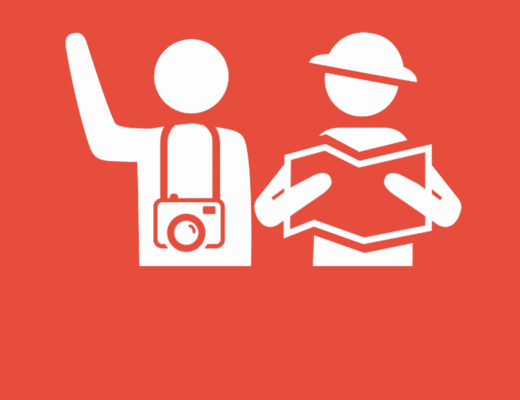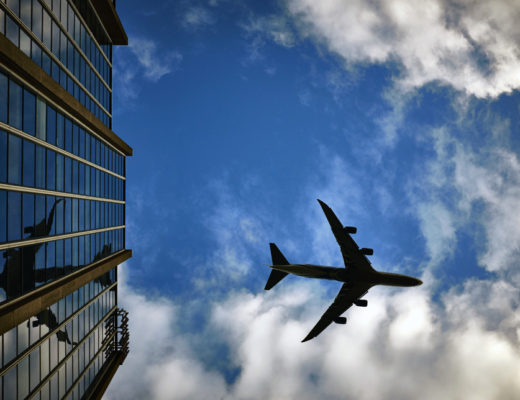People ask me all the time how I manage to save money to travel as much as I do, and I listen to them all complain about how they wish they could go to cool places like me, or how lucky I am. Well I’ll let you in on a little secret—everyone can travel if they want to. I don’t make a ton of money, I’m still paying off my student loans, and I live in one of the most expensive cities in Canada, yet I still make travel happen on a regular basis in my life.
How do I do it? I make travel my priority. I know that travel is what makes me happy, and because of that, I make sure that it is always a part of my life. I currently have a bank account that is set up specifically for my travel fund, and every pay check I have a certain amount of money that goes directly into that account. Because I’m so used to this happening, I don’t even notice the money gone and learned to live with less pretty quickly.
Now I know you’re probably wondering if I get to have any fun in between my trips as I’m saving my money for travel, and the answer is yes! Travel isn’t my main priority, I realize that I’d be pretty miserable if all I did was sat in my house and stored away all my disposable income towards trips. I still go out with friends, eat at restaurants, and attend fun local events, but I’m more cautious of how I do it. Maybe I will only eat out once or twice a month, or order a cheaper item on the menu and opt out of drinking alcohol that night. There’s really small changes everyone can make in their day-to-day life that makes travel obtainable for almost anyone.
Now although I know how I save money, I wanted to reach out to other travel-addicts to find out how they did it! Here is what they had to say:

The best thing that I did to save money for travel was create a sinking fund. Once I know my travel goal, I estimate the total expenses and then immediately create a sinking fund (in my savings account or in an envelope) for that trip. For example: I knew it would cost me about $650 to attend the Women in Travel Summit in Boston. I divided that estimate by the number of pay periods until my trip. That equation gave me the number that I would need to save each pay period for my trip. So every pay period until my travel date, I had $90 automatically transferred from my checking account to my savings account where I kept my travel sinking fund. – Melissa Josue, Write Travel Grow
Look for things in your life that you can do without that eat up your money. Eating out is the most often cited one, but everyone has their little splurges. We started keeping a list of each day’s spending to see where our money really went, then organizing it by week into categories and using that as a guide where we could make changes. – Aimee Lynch
My biggest tip to everyone is to learn how to be happy with what you have. if you can find new ways to use your belongings or wear your clothes, what you might have spent on a new wardrobe each season could be a ticket to some place new! – Holly Robertson, The Brave Little Cheesehead

The most effective way I’ve found, is every time I get any sort of cash (or have it leftover from an event), I put it into an old school piggy bank. So, when my mom hands me $10 and says, “have lunch on me,” or when I go to a concert and have cash leftover, as soon as I get home – it’s in the bank and I forget about it! – Kala Linck, SWFtraveler
It can be rough, but I don’t buy any clothes or shoes at home. If I need an item for a specific event, I buy it cheaply at Target. That way, all my travel purchases are wearable. The green silk scarf I bought in Egypt, the black flats I bought in Budapest, and the elephant bag I bought in Phuket are much more fascinating answers to the question, “Cute ____! Where’d you get it?” Plus, it inspires people to travel! – Anne Castagnaro, Travel. Food. Yoga. Books
Become really good at improvising and DIY-ing to make do with what you have or can get cheaply. For example: You can use lots of groceries as cosmetics (just Google DIY shampoo or whatever you need), which saves tons of money. Cooking for yourself is also great, as is Couchsurfing and ride-sharing for when you’re on the road. I reckon it’s always good to analyze your current spending’s, analyze where most of the money is going and find ways to cut down in that area. – Tina Reymann, Gypsy Spirit

I have my travel budget in a money market savings account (or a tax-free savings account in Canada) that earns a slightly higher interest rate than my regular savings account. I utilize rewards programs like Swagbucks, Bing, etc. to earn an extra $20-30 a month that goes right into my travel budget. In the summer months, I only keep my water heater on for 3-4 days a week. Aside from the refrigerator the water heater is the biggest energy user in the house and shutting it off on days you don’t take showers or do laundry can save about $20 a month from your electric bill. – Christa Singleton, Travel Fearlessly
My favorite tip is to cut your habits in half. My example: I will never want to give up restaurant meals entirely, but I can cut the frequency in half, and then maybe in half again. This lets you live a little and still work toward your goals because I believe that travel is ONE priority, not my ONLY priority. – Rebecca Pokora, The Girl and Globe
Sites like airfarewatchdog.com are great for getting flight deals in your inbox. You put in the destination you want, and they send you updates when there’s a lower price that comes up. Also, The Points Guy for flight deals, and Expedia/Orbitz/TravelZoo. I’ve done both WWOOFing and Helpx.net when I wanted to live with locals. I put in 20-35 hours a week doing anything from gardening to landscaping to painting or child minding, and the family gave me a room in their house and three meals a day. The biggest thing though, is making travel the priority in your life if that’s what you want to do. It’s so easy to spend money on going out to eat, getting a beer/latte/etc., but you can put all that money toward your travel fund and it adds up pretty quickly. – Christy Milford, Sweet and Savoring
In Los Angeles this has been a great money saver: If you don’t have to drive, then don’t. There’s been a few times where I had a couple of hours in between obligations, where normally I would make the drive home and change to come back, or relax. Now I’m trying to be practical. There are better ways to not drive and kill that time: books, take a nap in a park, try on perfumes that you don’t intend on buying, go to strange markets in Koreatown, visit your old pal, go to a library, people watch, lay on the beach and roll in the sand. Save your gas, Save your money. – Casey Horan, I’m Soaring Solo
There you have it, it doesn’t take you winning the lottery, or living in your parents garage to save up to travel, if you want it bad enough, the only thing that’s getting in the way is yourself. So get out there and see the world!
Two other amazing stories on how these fearless females saved a fortune for their adventures:
How I Saved $13,000 for Travel – Adventurous Kate
How to Save 20k in Two Years – Twenty-Something Travel





5 Comments
Kirstie
April 26, 2015 at 8:54 pmThese are great tips! My problem now is that I’ve saved enough for some epic trips but now don’t have the time off from work. Not the worst problem to have – I’ll find time some day!
Lauren
April 27, 2015 at 7:15 pmI know the feeling for sure. I have the same issue. I get 3 weeks off each year. What I find I sometimes need to do is ask if I can take additional time off unpaid. Although it sucks to not be paid, if it means that I get to go on a trip of a lifetime, it’s totally worth it!
valerie
May 2, 2015 at 2:19 pmLauren, thanks for sharing these great tips! I did a similar post months back and while researching and thinking of what I put to practice, buying bottled water is a cost that quickly adds up. Purchasing a safe BPA-free, durable water bottle, and drink tap. Personally, I love glass water bottles since they have zero affect on after taste. According to Treehuger.com, if you drink eight glasses a day you will spend $1400 a year buying bottled water. If you drink eight glasses a day and you get it from your tap, you’ll spend 49 cents. This would be a good year to save your $1400 on a product that not only hurts the environment, but it hurts your pocketbook. That extra cash could go to a lovely vacation! 🙂
Charles McCool
May 7, 2015 at 7:50 pmNice money saving tips.
jim corbett
January 19, 2019 at 5:49 amThis is very helpful article. I like specially your point when you mentioned “If you don’t have to drive, then don’t”. Most of the time I do that, But I think after reading this I will definitely think about it. Your other points are also helpful so thank you so much for this great info.